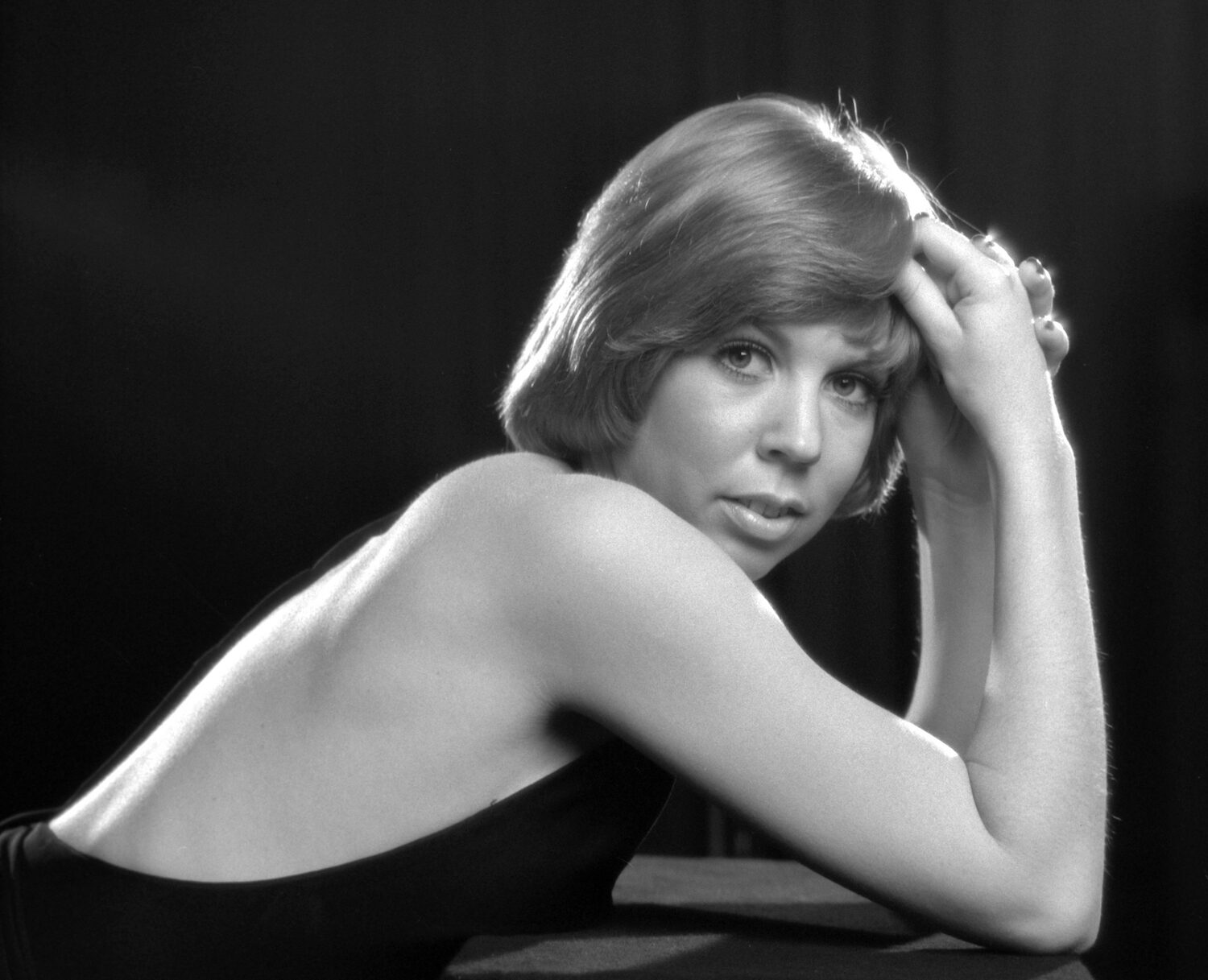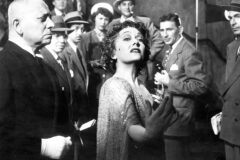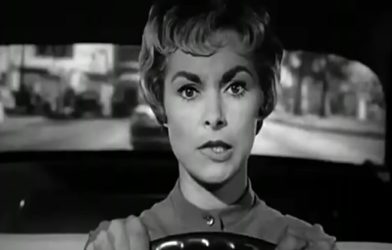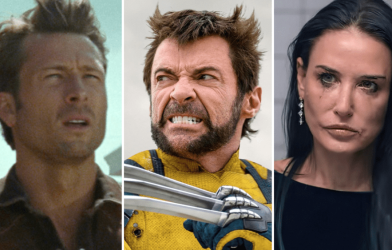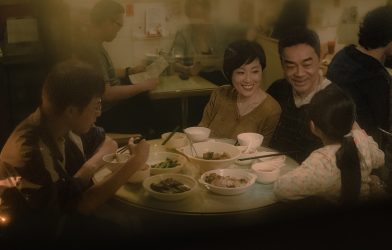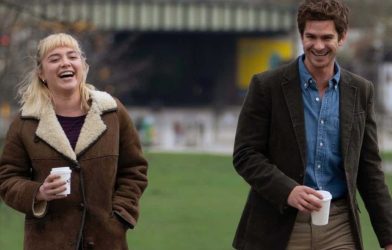“The Night the Lights Went Out in Georgia” was a strange hit in 1973. Riding the trend of kudzu noir that followed In the Heat of the Night, yet sung by an actress best known as a cast member of The Carol Burnett Show, it’s a story-song about murder and thwarted justice in the Deep South, where a man is convicted of a murder he didn’t commit. There’s a cheatin’ wife and a “big-bellied sheriff,” and a twist ending. “Don’t trust your soul to no backwoods Southern lawyer,” Vicki Lawrence sang, her voice low and conspiratorial, “’cause the judge in the town’s got bloodstains on his hands.” The screenplay practically writes itself.
Nearly a decade later, viewers who tuned in to watch The Night the Lights Went Out in Georgia were probably expecting to see those events acted out on their TV screens. Instead, they got something very different: a plodding hick tragedy about sibling drifters that ends not with an execution but a scene where Mark Hamill strips down to his tighty-whities and walks out of town with Kristy McNichol. It’s not an especially good movie—the pacing is glacial, the writing strictly first-draft, the accents exaggerated—but it stands out as one of the weirder examples of a film adapted from a song. It doesn’t bother to depict the events Lawrence describes in her hit single, but it does more than just borrow its title from a recognizable source. It sets its story in the same universe as the song, in the same backwards rural South that practices its own brand of justice.
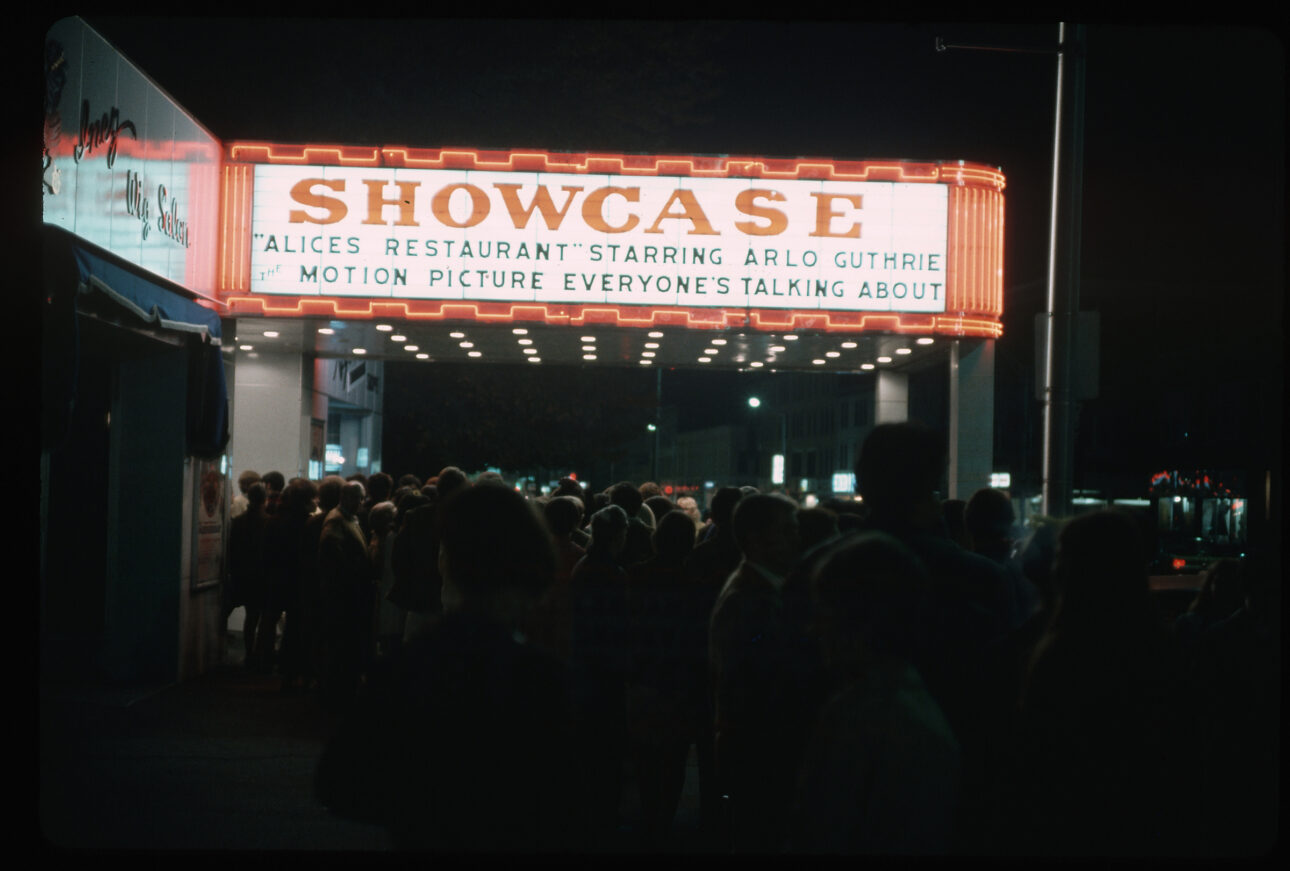

Pillaging pop music for movie ideas is a long and disreputable tradition in Hollywood, at least since 1930 when Hoagy Carmichael’s recording of “Barnacle Bill” was transformed into a Talkartoon starring an early version of Betty Boop. Especially in the 1960s and 1970s, when story-songs like “The Night the Lights Went Out in Georgia” clogged up the radio, the pop and especially the country charts offered up endless ideas for films. What works for a three-minute single, however, isn’t easily stretched out to 90 minutes, and what is mysterious and evocative or evasive or ironic in a song can be dully matter-of-fact on the screen.
It’s worth noting what doesn’t count as a song adaptation. Films routinely borrow their titles from songs even if there’s no further connection: Think Knives Out or Pretty Woman. And then there are the films inspired by an attitude or an image or a concept expressed in a song, like 1974’s forgotten The Second Coming of Suzanne, about a filmmaker obsessed with the idea that actress Sondra Locke is literally Jesus Christ. Of course it’s extrapolated from Leonard Cohen’s “Suzanne.” Sean Penn very loosely based his directorial debut, 1991’s The Indian Runner, on Bruce Springsteen’s “Highway Patrolman.” Neither is a strict adaptation, but more like a riff on the song.
Especially at a time when studios are scouring their vaults for the last crumbs of IP (Did we really need a live-action film version of Monster High? Was anyone excited about That ’80s Show? How many new sitcoms can The Big Bang Theory spin off?), it’s mildly surprising that this doesn’t happen more often. Why isn’t there a TV movie of “Old Town Road,” where the protagonist literally rides a horse on Old Town Road? Why isn’t there an Oscar bait production of Olivia Rodrigo’s “drivers license” directed by Kenneth Branagh? Maybe it’s related to the decline of the made-for-TV movie, a form which has been crowded out on one side by more reputable streaming fare and on the other by cookie-cutter Lifetime productions that are too cheap to spring for licensing.
So, until Taylor Swift reads my spec script for a made-for-TV adaptation of “Cardigan,” here are some of the best… no, the most popular… no, the most faithful… well, here are some other examples.
1. Alice’s Restaurant (1969)
In which Arlo Guthrie stars as Arlo Guthrie, visiting his dad Woody in the hospital and hanging out with his old friends up in Stockbridge, Massachusetts. Along the way he writes the jingle advertising his friend’s diner (“You can get anything you want at Alice’s Restaurant…” ) and does the things he describes in his 1967 song, an 18-minute epic of anti-establishment humor. So this adaptation is also an origin story for the very song it’s based on, although it also adds a downer subplot about Alice and Ray that so overwhelms the playful vibe. Weirdly, this flop was directed by Arthur Penn as his follow-up the Bonnie & Clyde, suggesting that that film’s countercultural bona fides might have been merely accidental.
2. The Ballad of Tam Lin (1970)
As in America, the folk scene in the UK was enamored with old traditional songs, except England, Scotland, and Ireland all had centuries’ worth of material rather than just decades. Among the songs excavated and reinterpreted for the hippie set was “Tam Lin,” about a man bewitched by the Queen of the Fairies. It was a pub favorite, memorably interpreted by Fairport Convention on their 1969 breakout album Liege & Lief. For his one and only directing credit, actor Roddy McDowell (then anchoring the Planet of the Apes series) adapted the song into a hippie parable starring Ian McShane and Ava Gardner. It’s trippy and inventive, with Gardner delivering a grandly charismatic performance as an eternal being who’s never been jilted. The last 20 minutes are wild and unpredictable, albeit less so if you know the song. McDowell includes portions of Pentangle’s version of the song throughout the film, almost as a voiceover, as though he’s aware that he’s participating in the folk tradition. The best film on this list and ripe for reassessment in the 2020s.
3. Ode to Billie Joe (1976)
In 1968, Bobbie Gentry’s crossover story-song was like a short film, full of such vivid musical and lyrical details that listeners experienced it visually. It got people involved, too: They wondered what Billy Joe McAllister threw off the Tallahatchie Bridge the same way people would later wonder who shot JR, who killed Laura Palmer, and why they ended Lost that way. It took eight years for someone to make an actual movie out of the song, explicitly addressing questions that didn’t really need answering. Spoiler: Billy Joe (played by Robby Benson) threw a ragdoll off that bridge, symbolic of his lost innocence, because (brace yourself) he’d had sex with his foreman and liked it a little too much. Oh, and the foreman is played by James Best, of Dukes of Hazzard fame. “Ode to Billy Joe” didn’t need an origin story, certainly not one so homophobic.
4. Harper Valley PTA (1978)
Ten years after Jeannie C. Riley outed the salacious secrets of the local PTA members, Barbara Eden starred in this bizarre adaptation, which opens with the song played in its entirety followed by a scene in which the lyrics become the dialogue. The I Dream of Jeannie star does her best to sell lines like “Well, this is just a little Peyton Place and you’re all Harper Valley hypocrites,” but can’t make them sound natural. The rest of the film chronicles the fallout from her very public gossip session, and in other hands it might make a chilling slasher film. After her yard is TP’ed and a rock is thrown through her window, Eden goes scorched earth, devising a series of revenge scenarios that would make Jigsaw squirm in his seat. She films revenge porn and tricks a teacher into showing it to her students. She steals elephants from the circus, paints them pink, and lets them loose in the home of the town drunk. She dumps a load of horse manure onto the head of the PTA. It’s all very cruel, but the film presents the shenanigans as funny and righteous. Somehow it was a drive-in hit and spawned a short-lived sitcom. (Side note: Why the hell is the film set in Ohio? And why does Eden have an exaggerated Southern accent?)
5. Convoy (1978)
Truckers were the cowboys of the ’70s, fossil-fuel heroes clogging the highway to preserve capitalism and to embody post-feminist American masculinity. You had truckers as main characters in the TV show BJ & the Bear (not a porno) and the Smokey & the Bandit trilogy, and you had CB lingo invading common parlance. And finally, you had novelty songs like C.W. McCall’s No. 1 hit “Convoy.” Somehow, that goofy single caught the ear of maverick director Sam Peckinpah (The Wild Bunch, Straw Dogs), who treated the material with stony seriousness, casting Kris Kristofferson as a vigilante trucker known as the Rubber Duck, Ali MacGraw as his love interest, and Ernest Borgnine as his lawman antagonist. It’s a bit like if Jeremy Saulnier adapted “Baby Shark.” They all act like this is a new Easy Rider rather than just another B movie (or, ahem, CB movie), but it works as highway melodrama.
6. Coward of the County (1981)
At least two of Kenny Rogers’ story-songs were developed into TV movies in the late 1970s and early 1980s, the more obvious of which is “The Gambler.” But the largely forgotten adaptation of his grim 1979 hit “Coward of the County” is much weirder, much darker, and more closely hews to the song’s lyrics. The song serves as a parable about a kid who won’t fight back against his bullies. When they sexually assault his girlfriend (if you know the song, you know the line that’s one of the most bafflingly gruesome moments in ’70s country music), he whoops their asses. The film retains those unsavory plot points, but makes some curious choices otherwise: Rogers stars as the most laconic fire-and-brimstone preacher imaginable, there’s a character named Car Wash who serves no other purpose than being named Car Wash, and poor Becky remains nothing more than someone who must be protected and avenged. More crucially, director Dick Lowry (who directed two made-for-TV sequels to The Gambler) makes a point of setting the film at the beginning of World War II, which reinforces the song’s scorn for peaceniks, conscientious objectors, and hippies of all stripes. It’s an anti-anti-war film for the Silent Majority, setting the stage for the vetsploitation trend that defined conservative action films throughout the 1980s.
7. Copacabana (1985)
Even if his albums weren’t selling as well as they did in the ’70s and his singles weren’t charting as high as they once did, Barry Manilow was doing alright in the ’80s. He could still bring in the crowds, as evidenced by his sold-out five-night run at Radio City Music Hall in 1985. Still, there was a weird nostalgia creeping into his setlists, thanks to originals like “The Old Songs” and covers like “Let’s Hang On.” Perhaps a film version of “Copacabana,” his most adored tune, was meant to work along those same lines, reminding viewers of both a simpler time in American music (after WWII but before Elvis) and a time in Manilow’s career when he still had No. 1 hits. As a starring vehicle, however, it’s a trainwreck. Manilow is incredibly charismatic as a singer, but he gives real Eddie Deezen energy in his only starring role. He’s manic, gangly, never quite comfortable in front of the camera, and he lacks chemistry with Annette O’Toole as his love interest and pre-Golden Girls Estelle Getty as his mom. Even worse, he contributes some stunningly blah songs to the soundtrack, so even the big production numbers lose all sense of spectacle. But—and there’s a spoiler here—at least they stay true and end on a bummer note, with Manilow getting shot and later appearing as a ghost on a disco dancefloor.
8. Purple People Eater (1988)
A 12-year-old boy, despondent over his parents taking an extended European holiday and leaving him with his grandfather, plays the 30-year-old novelty hit “Purple People Eater” and accidentally summons the song’s amethyst cyclops into our reality. Of all the films on this list, “Purple People Eater” is the only one that recasts its source material as a magical incantation with the power to unleash unholy entities. Shouldn’t we keep all copies of Sheb Wooley’s only hit behind locked doors? That’s the start of a really weird horror film or a really dumb episode of Black Mirror. In this case, the 12-year-old boy is played by Neil Patrick Harris just a year before he started his residency on Doogie Howser, M.D., and look, there’s Little Richard and Chubby Checker looking more than a little embarrassed. As E.T. ripoffs go, this one’s better than Mac and Me and Munchie, which isn’t saying much. But at least it answers the song’s biggest conundrum: it’s a purple thing that eats people, not a thing that only eats purple people.
9. Monster Mash (1995)
For decades Bobby “Boris” Pickett tried desperately to cash in on his 1962 novelty hit “Monster Mash,” filming a Halloween special in ’64, writing a musical in ’67, releasing several monster-themed singles, and even unleashing the gloriously ridiculous “Monster Rap” in 1984. But this teen flick from the mid 1990s, co-written and co-directed by Alex Sokolow and Joel Cohen (who both co-wrote Toy Story), is the only time anyone managed to get Pickett’s swinging monsters on the silver screen. There are some clever touches–a zombie Elvis is among the ghouls tormenting teens played by Ian Bohen (Yellowstone) and Candace Cameron Bure (Full House, Fuller House). But generally it’s hackwork undistinguished by any sense of personality or purpose.
10. Last Christmas (2019)
In this strange holiday romcom directed by Paul Feig (Freaks and Geeks) and co-written by Emma Thompson, a young woman working as an elf at a Christmas store falls in love with a mysterious do-gooder (Henry Golding) who helps her get her life back in order. Spoiler alert: She finds out that he is actually the ghost of a man who was killed a year before and allowed her to have a life-saving heart transplant. So yes, last Christmas he gave her his heart! Last Christmas is an astoundingly literal adaptation of “Last Christmas” that is evergreen (or evermoldy, if you make a game of avoiding it every year) Wham! hit from ’84. Pitched awkwardly between whimsy and pathos, screwball comedy and manipulative tearjerker, the film is so tonally weird that it can’t escape its silly source material. Not that you’d want it, too. There are countless chin-up holiday dramas, but there’s only one featuring haunted organs.

